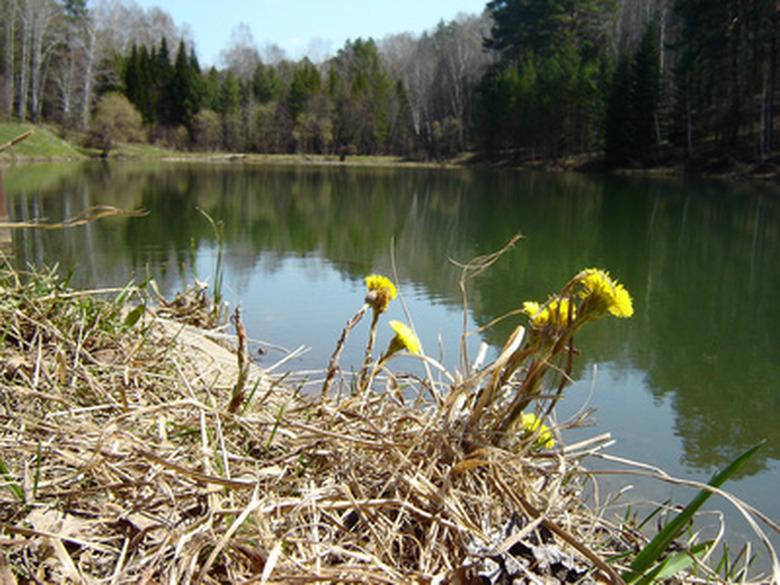Herbicides That Are Safe For Ponds
Aquatic herbicides can help remove and control weeds in ponds. According to the Southern Regional Aquaculture Center (SRAC), there are three steps in choosing which herbicide to buy: identify which weed you are trying to control, check that the herbicide is labeled for use with food fish and note any water-use restrictions for use in a particular situation on a specific body of water (i.e., swimming, irrigation, livestock watering). There are many herbicides that can be used in ponds, under the appropriate conditions.
Bluestone
Bluestone (copper sulfate) is a contact herbicide used to control algae in ponds. According to SRAC, bluestone can interfere with the gill functions of fish and, if improperly used, be toxic to fish and zooplankton. Koi and trout are especially sensitive to bluestone. Bluestone should be applied in cool months, as its toxicity to fish increases as the water temperature increases.
- Aquatic herbicides can help remove and control weeds in ponds.
- According to SRAC, bluestone can interfere with the gill functions of fish and, if improperly used, be toxic to fish and zooplankton.
Sonar
Sonar (brand name of fluridone) controls most submerged and emergent weeds. Available as pellets or liquid, the liquid also controls duckweed and watermeal. Sonar slowly kills plants over a 30- to 90-day period by preventing the depletion of dissolved oxygen. Sonar cannot be used as a spot treatment; you must treat the entire pond to control the weeds.
Reward
Reward (brand name of diquat) is a contact herbicide that can be sprayed on or injected into sections of a pond. It controls submerged weeds and filamentous algae. It also can be used in spray form to control duckweed and emergent vegetation. You may need several applications to kill surface mats of algae, such as Pithophora. When you use Reward as a foliar application, you will need to add a non-ionic surfactant. Because Reward will bind to clay, it is not very effective on mud-coated weeds or in muddy water.
- Sonar (brand name of fluridone) controls most submerged and emergent weeds.
Herbicides For Ditches & Ponds
Identifying the species or type of weeds in the ditch or pond will help to determine the herbicide best able to control the unwanted vegetation. For example, copper and copper complexes generally offer excellent control of algae, while fluridone controls certain floating plants such as duckweed or salvinia, many submerged plants including elodea and pondweeds, and certain emergent plants such as arrowhead and water lilies. Floating and emergent plants are potentially treated from the edge of the ditch or pond, or a boat with sprays directly on foliage while submersed weeds are also controlled using a water surface treatment, especially if the ditch or pond is shallow. Granules are generally implemented to control algae and submerged weeds. A dye intended for use in water is an option in low-flow situation, and controls the growth of submerged plants and algae by reducing light penetration.
References
- Southern Regional Aquaculture Center: Aquatic Weed Management
- West Virginia University Extension: Aquaculture
- Kentucky State University Extension: Use of Bluestone for Algae Control
- University of Kentucky Cooperative Extension Service: Category 5 Training Manual – Aquatic Weed Control
- California Weed Science Society Journal: Weeds of One-Two Acre Vineyard Irrigation Pond
- Virginia Cooperative Extension: Aquatic Weeds (Weed Control in Ponds and Lakes)
